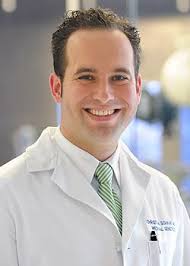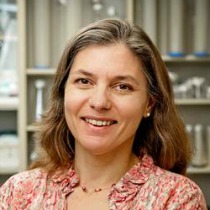
Theresa V. Strong, Ph.D.
Director of Research Programs
Theresa V. Strong, Ph.D., received a B.S. from Rutgers University and a Ph.D. in Medical Genetics from the University of Alabama at Birmingham (UAB). She performed postdoctoral studies at the University of Michigan in the laboratory of Francis Collins, M.D., Ph.D., studying the molecular basis of cystic fibrosis and Huntington disease. After her postdoc, she returned to the faculty at UAB, where her laboratory focused on developing gene therapy approaches for cancer. She became the Director of UAB’s Vector Production Facility and a Professor in the Department of Medicine. Theresa is one of the founding members of FPWR and has directed FPWR’s grant program since its inception. In October of 2016, she transitioned to a full time position as Director of Research Programs at FPWR. She remains an Adjunct Professor in the Department of Genetics at UAB. She and her husband Jim have four children, including a son with PWS.

Jennifer Miller, M.D.
Jennifer Miller, M.D. is an Associate Professor in the division of pediatric endocrinology at the University of Florida. She graduated with her M.D. from the University of Florida in 1998, and her M.S. in Clinical Investigation from the University of Florida in 2005. Her research focus includes: investigating the effects of growth hormone treatment on brain development, sleep, and appetite in individuals with PWS; investigating the effects of early-onset weight gain on brain development; studying the sleep abnormalities in individuals with PWS; and finding treatments for the hyperphagia and obesity in individuals with PWS. Dr. Miller has followed hundreds of patients with PWS and provides ongoing advice to patients on the most effective and newest management strategies and treatments for handling PWS.

Tony Goldstone, M.A., M.D., MRCP, Ph.D.
Dr. Tony Goldstone M.A., M.D., MRCP, Ph.D. attended medical school at Cambridge and Oxford Universities in the UK, and trained in general medicine, adult endocrinology and diabetes at the Hammersmith, St. Bartholomew’s and Royal London Hospitals in London. He obtained his Ph.D. from Imperial College London on the hypothalamic control of feeding and metabolism. He has researched and published widely on hormonal control of appetite, neuroendocrine, hypothalamic and metabolic abnormalities in obesity and Prader-Willi syndrome, particularly investigating the causes of hyperphagia, through pre-clinical, clinical, post-mortem, genetic, interventional, fat and brain imaging studies. He is currently a Clinical Senior Lecturer at Imperial College London, and a Consultant Endocrinologist at Imperial College Healthcare NHS Trust with specialist adult and paediatric clinics for patients with Prader-Willi syndrome, as well as in-patient and emergency care of patients within Endocrinology, Diabetes and Acute Medicine.

Jim Resnick, Ph.D.
Jim Resnick, Ph.D. is an Associate Professor in the Department of Molecular Genetics and Microbiology at the University of Florida. Dr. Resnick received a B.A. from Colgate University and a Ph.D. from the University of Pittsburgh, with postdoctoral training at Princeton University. He has a long standing interest in understanding the molecular mechanisms that drive imprinting, and has developed and characterized novel mouse models to understand this process.

Lauren Schwartz, Ph.D.
Lauren Schwartz, Ph.D. received a B.S. from the University of California, San Diego in Developmental Psychology and a Ph.D. in Clinical Psychology from the University of California, San Diego/San Diego State Joint Doctoral Program. She did her clinical internship and research fellowship at the University of Washington, Departments of Psychiatry and Rehabilitation Medicine. She has focused her studies and clinical work in the area of adjustment and recovery from disability. She has a particular interest in the impact of disability on families and the interaction between family responses to disability and patient physical and psychological functioning. She is currently on the faculty at the University of Washington School of Medicine in the Department of Rehabilitation Medicine where she does clinical work, teaching and research. She and her husband Mark, have two children, including a daughter with PWS. Lauren is one of the founding members of the FPWR and served as President of the FPWR Board of Directors from 2005-2009.

Christian Schaaf, M.D, Ph.D.
Dr. Schaaf is a Professor and the Chair of Human Genetics at Heidelberg University, and Medical Director of Human Genetics at the University Hospital of Heidelberg. Dr. Schaaf's research focuses on the genetic causes of intellectual disability and autism. He uses clinical approaches, gene discovery, mouse genetics, and induced pluripotent stem cells.

Janine LaSalle, Ph.D.
Dr. Janine LaSalle is a Professor of Microbiology and Immunology at the University of California, Davis, with memberships in the Genome Center, and the MIND Institute. Dr. LaSalle serves as the Associate Director of Genomics in the Genome Center and the Co-director of the Perinatal Origins of Disease Research Center at UC Davis. She served as a past chair of the Genes in Health and Disease study section for the NIH. Dr. LaSalle also serves on the editorial board of the journals Human Molecular Genetics, Molecular Autism, and Environmental Epigenetics and is on the Scientific Advisory boards of the International Rett Syndrome Foundation and the Dup15q Alliance. The research focus in Dr. LaSalle’s laboratory is on epigenetics of neurodevelopmental disorders, including autism, Rett, Prader-Willi, Angelman, and Dup15q syndromes. Dr. LaSalle’s laboratory uses genomic, epigenomic, and fluorescence in situ hybridization technologies to investigate the role of DNA methylation and long noncoding RNAs in the pathogenesis of Prader-Willi syndrome. Dr. LaSalle’s lab also takes integrative genetic and epigenomic approaches to investigate to role of persistent organic pollutants and other environmental factors on the placental and developing brain methylome.

Maithe Tauber, M.D.
Maithe Tauber, MD is a Professor of Pediatrics at the University of Toulouse and Chief of Endocrinology and Medical Genetics at the Children Hospital of Toulouse. She directs the Reference Centre for Prader-Willi syndrome in France and is the Chair of the Scientific Council of Prader-Willi France. Her research interests include the management of PWS, including the development and evaluation of new therapies for PWS, such as oxytocin.

Rachel Wevrick, Ph.D.
Rachel Wevrick, Ph.D., Professor of Department of Medical Genetics, University of Alberta, received her BSc from Queen’s University and her PhD from the University of Toronto. She performed postdoctoral work at The Hospital for Sick Children in Toronto and at Stanford University. Her research focuses on elucidating the normal function of specific genes in the PWS region (necdin, MAGEL2), and understanding how loss of these genes contributes to the PWS phenotype. She uses mouse models to determine the role of these genes in nervous system development as well as muscle and endocrine function.

Andrew Zinn, M.D., Ph.D.
Andrew Zinn, M.D., Ph.D. is the Dean of the University of Texas Southwestern (UTSW) Graduate School of Biomedical Sciences and the Associate Dean for the Medical Scientist Training Program. Dr. Zinn received a BA from the University of Texas at Austin, a PhD from UTSW Graduate School and an MD from UTSW Medical Center in Dallas. Dr. Zinn’s research interest is in genetic disorders of growth and reproduction, including Sim1 deficiency, which is another hyperphagia/obesity syndrome.

Sebastian Bouret, Ph.D.
Sebastien Bouret, Ph.D. is a Tenured Research Director at the French National Center for Scientific Research (CNRS) at the Lille Neuroscience & Cognition Research Center in France. After receiving his PhD from the University of Lille, France, he performed a postdoctoral work at the Oregon Health & Science University in Portland, OR (USA). Dr. Bouret has an interest in metabolic programming and the neurobiology of obesity, investigating the complex hormonal signals and neurodevelopmental substrates responsible for appetite regulation.



